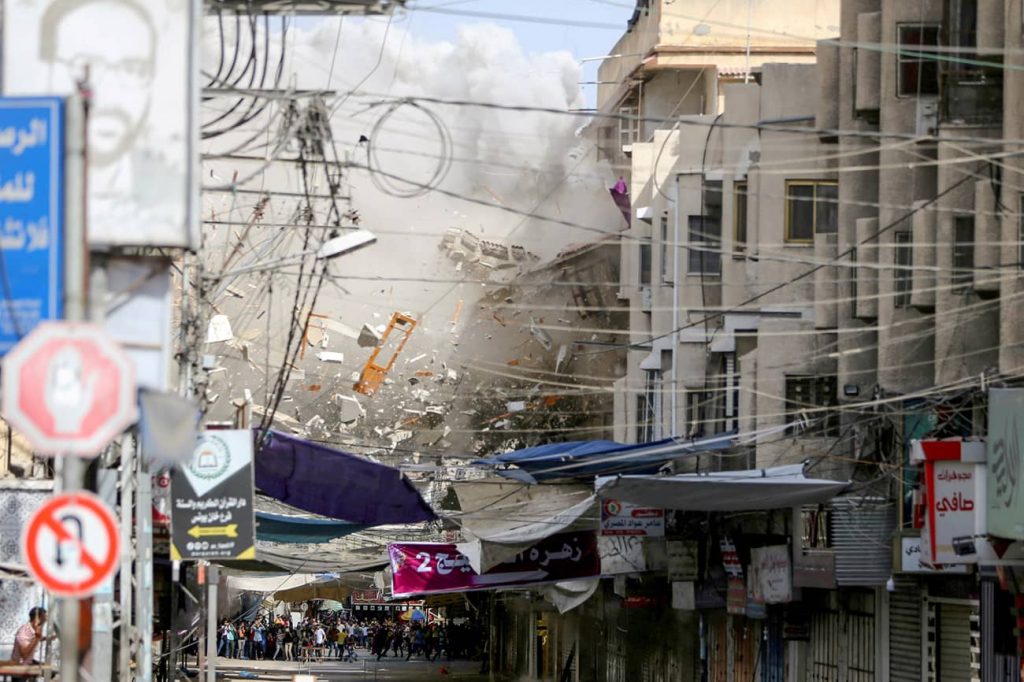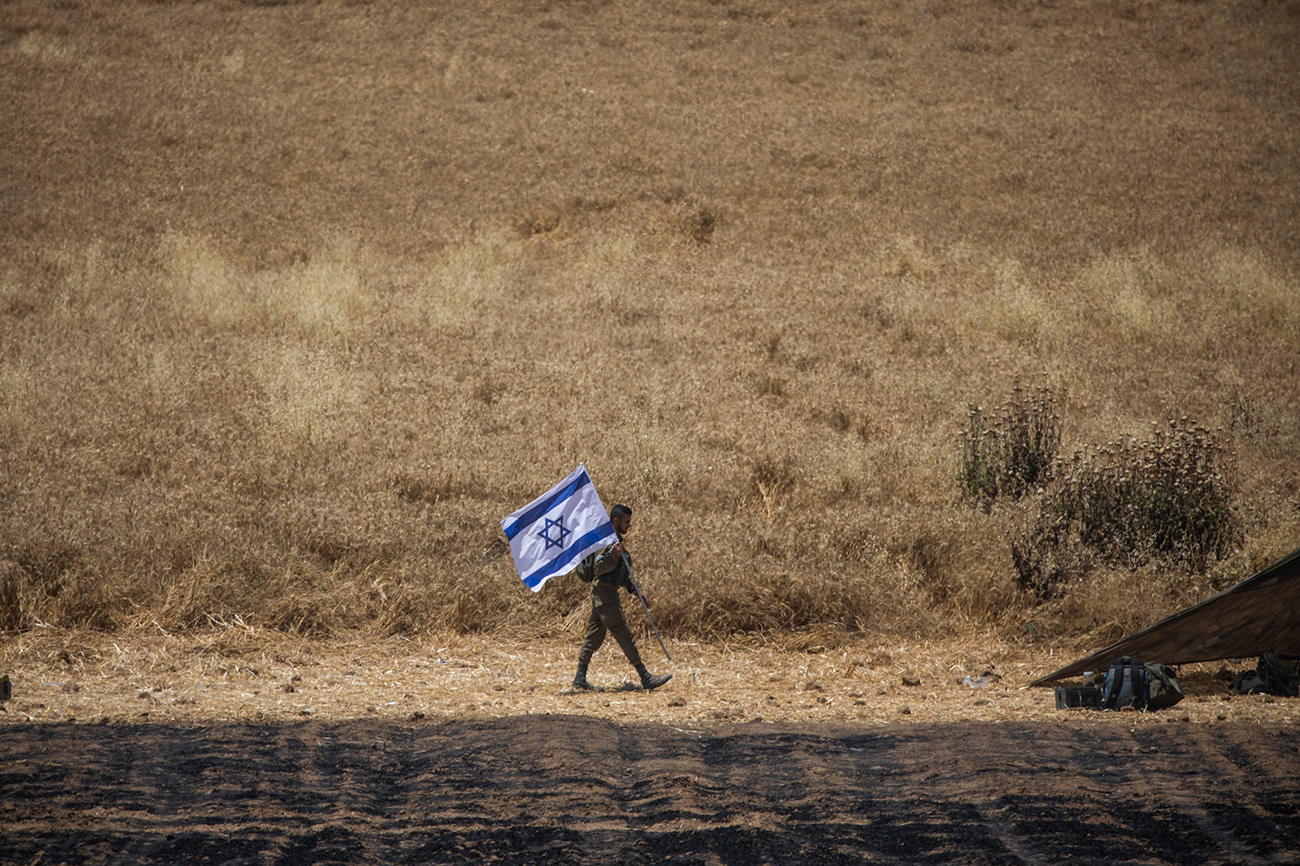Israel is a regional power in the Middle East that is stronger militarily, economically, and diplomatically than its foes. The time has come for it to act accordingly and seek to promote its interests through regional alliances and a vision that would bring the US back to the Middle East. This is the only way to reach an equilibrium with Iran, prevent it from becoming nuclear, and move toward a possible agreement with the Palestinians.
In its 73rd year of existence, Israel seems more secure than ever. The recent annual commemoration of the Yom Kippur War only reminded Israelis how far removed Israel is today from the major wars fought against large enemy armies camping on Israel’s borders. Israel’s neighbors have either reached peace agreements with it (Egypt and Jordan) or they have disintegrated from within (Syria and Lebanon), their armies weakened.
The bad memories of the Second Intifada, with over 700 Israelis murdered in terrorist attacks, are also a thing of the past: An efficient preventive system, fueled by highly accurate intelligence from the Shin Bet, thwarts most of the attempts by Hamas and other organizations to renew suicide bombing and other acts of terrorism. In the north, Hezbollah—by far the most threatening of Israel’s neighboring enemies—has been restrained since 2006, largely due to mutual deterrence following the Second Lebanon War. The unstable situation in Gaza erupts now and then in cycles of violence, but effective defense systems—Iron Dome in the air and the underground wall against tunnels crossing into Israel—help keep the number of casualties to a minimum.
Militarily, economically, and diplomatically, Israel is by far stronger than any of its immediate foes. Yet this situation, welcome as it is, has hardly changed the way Israelis view the world, nor—more importantly—the way different Israeli governments have acted on security matters. The main reason for Israel’s persistent fear mongering is the difficulty that we have of ridding ourselves of fears that are deeply rooted in our collective consciousness.
It is time to consider a new strategy, based on the realization that Israel is powerful. But first we should define what “powerful” really means and attend to the crucial difference between power and force: A powerful nation does not run around flexing its muscles all over the place, as Israel seems to do in too many instances. Instead, it conducts itself as a power, viewing its environment through the lens of its relationships with other powers, regional and global. It seeks an equilibrium compatible with its basic interests, rather than exercising force as if every challenge is an existential threat.
In an interview with the New York Times, Major General Gadi Eisenkot, former chief of staff of the Israel Defense Forces, revealed that Israel “attacked thousands of targets” in Syria and Lebanon during his four-year tenure. Yet this force-wielding did little to promote Israel’s long-term interests vis-à-vis its various challengers. Use of force without implementing the grand strategy of a power is not likely to deliver long-term results.
If indeed, as I maintain, Israel’s failure to act as a power has to do with internal politics, mass psychology, and the lack of a proper decision-making process, it is a high time for a change. Unless it begins to form and implement this “power doctrine,” Israel faces the risk of weakening from within and losing its edge in a changing world. The Middle East is always changing, always in a flux: What you didn’t do in relatively safe times will come to haunt you once they are gone.
The power policy should manifest itself, first and foremost, vis-à-vis Israel’s two most important external challenges—the threat of Iran obtaining nuclear weapons and the future of the Israeli–Palestinian relationships (in the plural, given the different prospects of Gaza and the Palestinian Authority). The first may come to a head in the immediate future; the latter presents a threat to Israel’s long-term prospects as a Jewish and democratic state, a self-definition that inherently entails a built-in tension.
The major fault line in the Middle East has become the rift between stability-seeking countries and the disruptive (and often destructive) forces of radical Islamism, whether Shiite (led by Iran) or Sunni (the Islamic State, al-Qaida, and the like). Israel has, of course, deep common interests with those who seek stability, and faces direct threats from the Iran axis and the forces of international terrorism.
So far, Israel has reacted to this relatively new situation in the limited manner of a “villa in the jungle”—a term often used by former Prime Minister Ehud Barak. It has strengthened its security cooperation with its immediate and not-so-immediate neighbors, exploited the turmoil in Syria to wage an aerial campaign against the arming of Hezbollah, and finally, signed the Abraham Accords, bringing about peace agreements with countries who were, de facto, never at war with Israel and, in fact, already had rather extensive economic relations with it.
The signing of the Abraham Accords had to do both with Israel’s limited outlook of its place in the region and former Prime Minister Benjamin Netanyahu’s obvious opposition to moving forward on the Palestinian issue. In fact, Netanyahu saw the Abraham Accords as proof that, contrary to what others thought, he was right in claiming that Israel could reach peace with Arab countries without consenting to the creation of a Palestinian state.
But in his speech at Bar-Ilan University in 2009, even Netanyahu acknowledged that peace with the Palestinians is essential to preserving a Jewish and democratic Israel. Moreover, a strategy based on the idea of Israel as a regional power is the only way of extricating the stalled peace process from the morass it is in now.
A nuclear Iran would present an existential threat to Israel and a dangerous disruption of the equilibrium in the Middle East. This isn’t debatable; but the current use of force—covert, diplomatic, economic, and the threat of military action—has done little to prevent it from becoming reality. After years of “maximum pressure,” exerted by the Trump administration at Israel’s behest and accompanied by covert operations on Iranian soil, Iran is closer to the bomb than ever.

Debris fly following an Israeli strike in Khan Younis, Gaza Strip, in May 2021. Photo credit: REUTERS/Ibraheem Abu Mustafa
A powerful Israel should seek a balance with Iran. I’m not talking about negotiations, which I believe are impossible with the present Iranian regime. Iran is a regional power, with a rich history, a deep sense of its place in the region, and also with many interests. Some of its neighbors present much greater challenges to its aspirations than Israel does. Iran sees itself as leader of the Shiite world and protector of Shiites throughout the Middle East. Many of its actions, including the strides it takes toward having weapons of mass destruction, are rooted in the perceived threats to its regime.
We should broaden the field of engagement with Iran. Instead of using rhetoric of bringing them to submission (“the object is to bring the Iranian regime to a point in which it will have to choose between its own survival and the bomb,” former Defense Minister Moshe Ya‘alon used to declare), Israel should seek to work with other countries to help create this balance, understanding that Iran will not be brought down to its knees.
First and foremost, this entails bringing the US back to the Middle East. The one thing the Obama and Trump administrations shared was the desire to leave the Middle East and its unsolvable problems behind. It was and is for the US a region “best avoided,” in the words of former President Obama, and this seems to be the case for the Biden administration as well. Indeed, the priorities of the Biden administration are elsewhere, from the global power competition with China to the climate crisis to internal matters.
The only possible way, if at all possible, of bringing the US back to the region, is to present to Washington a vision of a Middle East led by its allies—Israel standing with the stability-seeking regimes of Saudi Arabia, Egypt, the Gulf states, Jordan, and the countries in North Africa. This alliance can work together with the US and other global forces to broaden the field of negotiations, assuage some of the regime’s fears, and present an alternative that would render the pursuit of the nuclear bomb harmful to Iran itself. This alliance should negotiate with and bring to the table many of Iran’s neighbors, from Turkey in the west to the former Soviet countries in the north, and all the way to Pakistan and China.
Israel should draw red lines in terms of the armed presence of hostile forces in its immediate environment, but it should recognize that it is futile and harmful to chase after every militia crossing the border into Syria. In time, Russia and even the Assad regime will have differences with the Iranians; by seeing everything through the tactical lens of “where can we bomb,” Israel only delays that point in time.
None of this, of course, is possible without real progress on the Palestinian front. Although most of the Arab world doesn’t seem to care much for the Palestinians, the difference between the shallow framework of the Abraham Accords and a real new reality in the Middle East is the resumption of moving toward an agreement with the Palestinians. In fact, a regional view is essential to extricating the Palestinian issue out of its present deadlock.
There will be risks involved. As papers prepared by the IDF Planning Branch and American think tanks have shown, possible measures could lower those risks to an acceptable level. The main point, though, is that a powerful nation is strong enough to take risks: and a power-based strategy is essential to move Israel toward real stability and a future filled with hope.



